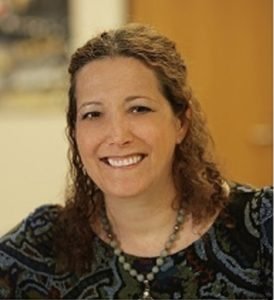If you are raising a child with special needs, then you know from personal experience that it can feel like you’re fighting the battle alone, and there are few relevant resources available to you. Robin Kellogg, a mother, author, and business owner has written a revealing, informative, and heartfelt book about her experience raising a child with special needs. The book is titled A Life Put on Hold: My Son’s Journey with a Brain Injury and the Lessons I Have Learned Along the Way, a compelling title which speaks volumes in and of itself.

Lisa: Today, I have the pleasure of talking to Robin Kellogg: a mother, wife, author, and a business owner. How are you today?
Robin: I’m terrific. How are you?
Lisa: I’m well, thank you. I’m a mom who has a child with special needs myself, so I know how the parenting experience can be filled with peaks and valleys. I want to take the time to speak to you today—not as a business owner or as a wife—but as a mom of a child with special needs. So you have written a book titled A Life Put on Hold: My Son’s Journey with a Brain Injury and the Lessons I Have Learned Along the Way. Congratulations. So you initially used a pen name when you published the book. Can you tell me about that?
Robin: I started writing notes about this experience when my son first had his brain surgery in 2005. When I decided to turn it into a book in 2013, I discussed it with my son; although it was my story, it was really his story. At the time, his concern was that someone would knock on his door one day and say, “I know your story,” and he would be embarrassed and mortified. So he said to me,“I understand you want to tell other parents, and you want to connect with them. But you have to change our names.” I used Evie Rosen because Evie Rosenthal was my mother’s name, so I shortened it. So it is a homage to her and to my son.
Lisa: A Life Put on Hold is a powerful title. Whose life was put on hold?
Robin: Well, that is funny because in my mind, it was originally my son’s life, because he missed out on most of his teenage years. He was fourteen when he had brain surgery, and even before that, he was having issues that were related to the disorder. So my first thought was that his life was put on hold, but as other people in my writers’ group read it, they said, “You know, your life and your husband’s life have also been on hold because of all of the things that you stopped doing—because you had to be there for him.” So I think that it covers all of our lives.
Lisa: So what encouraged you to share your family story now?
Robin: Well, I started writing this in 2013, and published it in 2014. And I think what encouraged me was that over the past ten years, I have met with people, and it would eventually come out that I have a child with special needs. Then I find out that either they themselves are going through the same situation, or they know someone who is. I have listened to their stories, and they are so similar to mine.
I think the general feeling is that you are going through a long, dark tunnel all by yourself, because those people immediately around you don’t have that experience. And you don’t know where to find that group of kindred souls who do. So with the book, I hope to say that we all have the same story. And then on the back, I have resources that I feel will be helpful to people who are dealing with all kinds of special needs.
Lisa: That is excellent, and you are right. As supportive and compassionate as family members can be, they just aren’t those kindred spirits who have experienced those mountains, peaks, and valleys. So let’s jump into the book. You entitled Chapter Two “Listen to Your Gut; It’s Usually Right.” Can you speak about your story? Do you think Seth was born with this challenge, or did it develop along the way? What is the title about?
Robin: My gut says he was probably born with it. From the time he was born, he was always very uncomfortable. And I used to think it was gas, and he also had some allergies. But now that I think back, he was probably having pain in his head too. He was probably having headaches from an early age. He had full-blown migraines when he was five years old, and he would throw up. And back then, they were just considered migraines. It was considered a separate issue.
When he was five, I talked a pediatric neurologist into doing a CAT scan, and one hemisphere of his brain was larger than the other. And the doctor at the time said, “Well, it is a red flag, and we will watch it.” And I wish that back then I had known more and pushed for further testing, and we could have found it earlier.
His diagnosis was Moya Moya. It is a Japanese word, and it means “puff of smoke.” It effects the carotid arteries in the back of the head. So what happens is that the arteries thicken and they restrict the blood flow. And the brain tries to compensate because it knows it needs a certain amount of blood, so it starts creating this gaggle of tiny blood vessels, which looked like a puff of smoke to the Japanese scientist who discovered it. They try to work as hard as the artery, but they can’t. And in the end, they rupture and it can cause a stroke.

